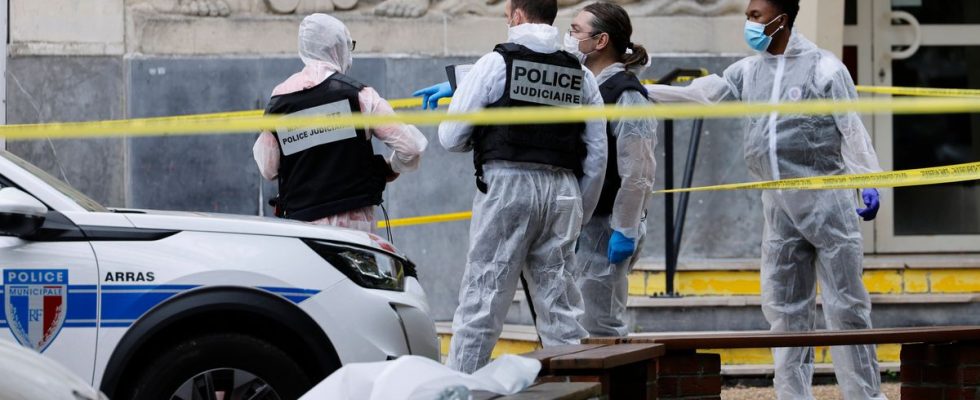After the astonishment, come the questions. If Mohammed M., the main suspect in the knife attack in the Gambetta high school in Arras, remains silent in police custody, investigators are working to retrace the journey of this 20-year-old Russian, who arrived in France in 2008. A careful investigation to try to understand why this former student of the establishment decided to carry out a terrorist attack there. Dominique Bernard, a literature teacher, was stabbed to death and three other members of the educational community injured.
The investigators are thus tracing the thread of this Russian family, which arrived in France in 2008 and of which another member – Mosvar, the older brother of Mohammed M. – is currently detained for acts of terrorism. Originally from Ingushetia, a small republic in the Caucasus, the couple and their four children – a fifth will be born in France – first applied for asylum in Poland, claiming to be fleeing persecution. A rejected request which will once again lead the family onto the roads of exile. After a time in Germany then in Belgium, the M. set down their bags in the West of France. First in Vendée, then in the Rennes region. New request for asylum. And new rejection.
An obligation to leave the territory in 2014
At the beginning of 2014, the family, in an irregular situation, was subject to an obligation to leave the territory (OQTF). One morning in February, at dawn, they were forced to board a plane heading to Roissy. They must then take a second flight which will take them back to Russia. But this expulsion arouses indignation in Rennes. An intense mobilization is organized around the family. We are barely four months after the Leonarda affair – a young Kosovar whose planned expulsion had provoked intense protest throughout the territory – the subject is particularly sensitive. Finally, at the last moment, the M.s were taken to the Mesnil-Amelot detention center, in Seine-Saint-Denis.
The Ministry of the Interior finally suspended the measure given the scale of the mobilization. Asked by The Telegram on this subject, Manuel Valls who was at Place Beauvau at the time indicated that he had “not intervened directly”. And to specify: “My office then examined the file and considered that this expulsion did not respect the so-called Valls circular. The family had in fact been on French soil for more than five years and the children, one of whom was very young, were in school and spoke French. »
It was just after this affair that they headed towards Arras. In 2021, having just reached the age of majority, Mohammed M. applied for asylum in order to regularize his situation. His father was deported in 2018. His older brother is already indicted in two terrorism cases: a planned attack on the Elysée and a second apology case. His request is rejected. Just like his appeal, in the summer of 2022, before the National Court of Asylum. However, the young Russian cannot be expelled. “He entered France before the age of 13 and therefore benefits from absolute protection against deportation,” specifies a source close to the case.
Absolute protection and its exceptions
This protective measure can, however, be lifted when the person, having reached the age of majority, lends himself to certain practices. Three exceptions are identified by the law: engaging in behavior likely to harm the fundamental interests of the State, carrying out acts of explicit and deliberate provocation to discrimination, hatred or violence or have activities of a terrorist nature. Could Mohammed M., registered S. and known for his radicalization, therefore not fall under these exceptions?
“Its detection is extremely recent,” insists a source close to the matter. Mohammed M. was listed as S. and registered in the Report Processing File for the prevention of radicalization at the very beginning of October. His radicalization was spotted this summer following comments deemed “very worrying”. “He was wiretapped, was the subject of multiple physical surveillance,” confided Friday to 20 minutes a source of intelligence services. He had, again on Thursday, been checked without anything to suggest any plans to take action. Until now, no offense has been identified. His record was otherwise clean. Until this fall, the young man could not therefore be subject to an obligation to leave the territory.

